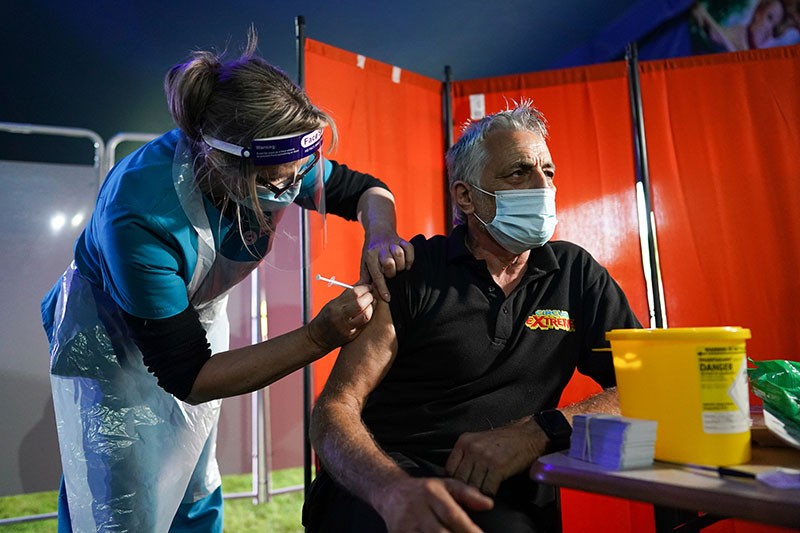COVID vaccines shield against Delta, but their performance wanes
The Pfizer–BioNTech and Oxford–AstraZeneca COVID-19 vaccines are helpful versus the very infectious Delta variant of SARS-CoV-2 — but their safety drops absent over time, a analyze of infections in the United Kingdom has concluded.
Researchers at the College of Oxford, United kingdom, and the country’s Place of work for Countrywide Studies analysed a large info set comprising the benefits of 2,580,021 PCR assessments to verify for SARS-CoV-2 from 384,543 British isles grown ups among 1 December 2020 and 16 May 2021 — when the Alpha variant was dominant — and 811,624 check effects from 358,983 individuals involving 17 May possibly and 1 August 2021, when the Delta variant was far more commonplace.
The outcomes, revealed in a preprint on 19 August1, propose that the two vaccines are successful versus Delta right after two doses, but that the protection they offer you wanes with time. The vaccine produced by Pfizer in New York City and BioNTech in Mainz, Germany, was 92% efficient at holding persons from creating a high viral load — a higher focus of the virus in their exam samples — 14 days after the next dose. But the vaccine’s performance fell to 90%, 85% and 78% soon after 30, 60 and 90 times, respectively.
The vaccine designed by Oxford and the pharmaceutical business AstraZeneca in Cambridge, United kingdom, was 69% efficient in opposition to a high viral load 14 days just after the second dose, falling to 61% by 90 times.
The drop in efficiency shouldn’t be bring about for alarm, claims Sarah Walker, a health-related statistician at the University of Oxford who led the review. For “both of these vaccines, two doses are nevertheless accomplishing genuinely very well in opposition to Delta”, she says.
Peak degrees
The study reveals that vaccinated people who develop into contaminated with the Delta variant have substantial peak amounts of virus. When the Alpha variant was dominant in the United Kingdom, vaccinated people who became contaminated had a great deal lower peak viral hundreds.
The implications of this aren’t distinct, Walker states. “Most of our tests are regular monthly we just can’t really say quite a great deal at all about how extensive people today are infectious for and significantly no matter if which is diverse with Delta,” she claims. “Anyone who thinks that if they get contaminated having been vaccinated, they can not transmit — that isn’t very likely to be genuine.”
The information also propose that the time amongst doses of vaccine doesn’t have an affect on vaccine effectiveness, and that people today who have beforehand analyzed good for COVID-19 as effectively as obtaining two vaccine doses have the most effective protection in opposition to upcoming infection.
The investigation targeted on the 18–64 age group and did not search at hospitalizations or fatalities, factors out Dvir Aran, a biomedical info scientist at Technion — Israel Institute of Engineering in Haifa. “This analyze is about an infection, not severe disorder,” he suggests. The final results back up observations from Israel, which vaccinated its inhabitants extremely early in the pandemic, he states. “We are seeing superior stages of breakthrough [infections] in the population that was vaccinated early, and on the other hand, we are viewing robust security in those people vaccinated not long ago — in particular in 12–15-year-olds.”
The benefits raise concerns about no matter whether it could be more productive to have doses of various vaccines, alternatively than multiple doses of the very same a single, primarily if a 3rd, booster dose is to be deemed. Georg Behrens, an immunologist at Hanover Professional medical University in Germany, suggests that mixing vaccines could improve their efficiency. The immune program reacts differently to different forms of vaccine — and this could be exploited to bring about a greater over-all reaction. “Using a vector-dependent 1 to start with and then some thing that has no vector, but the same antigen, totally makes feeling,” states Behrens.

